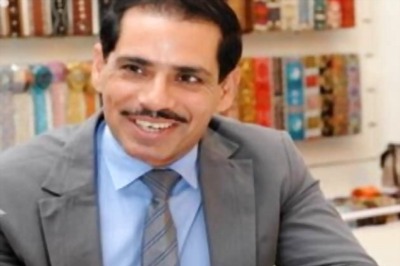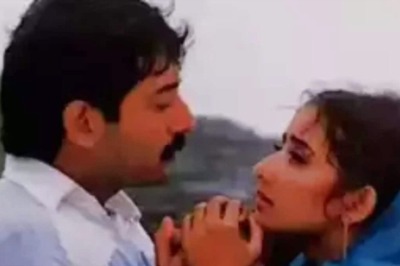
views
In the wilderness after his party’s debacle in the just-concluded Lok Sabha polls, Rashtriya Janata Dal (RJD) leader Tejashwi Prasad Yadav, the much-hyped successor of Lalu Prasad Yadav, seems to be looking for political space, working on fresh strategies to regain lost ground.
A much bigger challenge awaits him ahead in the assembly elections to be held in 2020 in Bihar, in which his win or loss will decide his political future and survival of his party, which presently has 80-odd legislators in the Bihar assembly. If he manages to get substantial number of seats in the next assembly polls, he will be able to carry forward his father’s legacy, and if he fails, his political future will be at stake like many other scions of the political families in Bihar.
Six years ago, Lalu Yadav had launched his two sons, Tejashwi and Tej Pratap, into active politics with a big fanfare at a rally in Patna. Of the two, Lalu chose his younger son, Tejashwi, as heir apparent following demands from within the party to pass on the mantle to any other leader when his conviction in fodder scam cases became imminent.
But Tejashwi stands vanquished today as his leadership has failed to provide the required fillip to the grand alliance or Mahagathbandhan of five political parties led by the RJD in the just-concluded Lok Sabha elections. Barring the lone seat of Kishanganj, which the Congress won, grand alliance has not only lost all 39 out of 40 Lok Sabha seats in Bihar but at many places its candidates have forfeited their security deposits.
Doubts are being raised on Tejashwi’s political acumen and his managerial skills, with RJD leaders questioning whether he can steer the party to success or would it be the end of party’s 22-year political journey with him at the helm of affairs in the absence of his father.
The RJD was formed by Lalu Yadav in 1997 when leaders of the then Janata Dal wanted him to resign from the post of the chief minister after a charge-sheet was filed against him in the multi-crore-rupee fodder scam. He roped in 17 Lok Sabha MPs and eight Rajya Sabha MPs of the Janata Dal from Bihar to launch RJD and installed his wife Rabri Devi as the chief minister of Bihar.
Knives are now out in the RJD with a section of party legislators led by MLA Maheshwar Yadav demanding resignation of Tejashwi on moral grounds owning responsibility for party’s humiliating defeat in the polls. His opponents point out that Tejashwi erred in choosing the right poll narrative and his emphasis on the reservation issue did not fetch the expected dividends.
His opposition to Centre’s decision to introduce 10 per cent quota for the economically weaker sections among the upper castes failed to unite the Backward Castes in favour of the RJD-led coalition.
Tejashwi also botched up the selection of allies as it was certainly not in the interest of the RJD to leave as many as 11 Lok Sabha seats for the caste-based political outfits like Rashtriya Lok Samata Party, Hindustani Awam Morcha and Vikassheel Insan Party besides nine for the Congress.
Although he tried to step into his father’s shoes, the absence of proper political grooming and lack of experience was discernible during electioneering. He could not transform himself from a loquacious heir apparent to a politically correct and wily young politician with a business-like approach that could have earned him electoral dividends.
Tejashwi’s six-year political journey has been full of ups and downs and his official profile has witnessed highs and lows — from the post of deputy chief minister to leader of opposition — in a span of less than two years.
He had to face stiff opposition from his kin when he was anointed as successor of his father. Everything was not rosy back home as his elder sister Misa Bharti and elder brother Tej Pratap grudgingly accepted his coronation as the torch-bearer of the family legacy.
Tejashwi’s political fortune brightened when Nitish Kumar joined hands with the RJD in 2015. With Lalu in command of electioneering and Nitish by his side, the RJD-JDU-Congress combine won the assembly polls with 178 seats. As per the agreement, Nitish became the chief minister with Tejashwi as deputy chief minister and Tej Pratap as health minister.
But soon, cases of benami transactions in the name of Tejashwi surfaced and the then leader of opposition, Sushil Kumar Modi, launched scathing attack on the government. It was alleged that Tejashwi along with his other family members owned benami assets — about a dozen plots and buildings in Patna and Delhi, farm house in Palam Vihar area in New Delhi, besides plots where a shopping mall was being constructed in Patna. He also faced a money laundering case in granting the operational contract of two IRCTC hotels to a private firm when Lalu was the railway minister.
Embarrassed by the allegations, Chief Minister Nitish Kumar sought an explanation from Tejashwi Yadav. As Tejashwi failed to issue clarification on the allegations, Nitish eventually quit the grand alliance and once again joined hands with the BJP. In the meantime, Lalu was sent to jail and the responsibility of the 2019 Lok Sabha elections fell entirely on Tejashwi’s shoulders.
It will be premature to say that his days are over, but Tejashwi has two important tasks cut out for him in days to come. Firstly, he will have to come out clean on the allegations and ensure that he does not meet the same fate as his father as the agencies dealing with economic offences are gradually tightening noose around his neck. Secondly, he will have to rework his strategy to stay relevant in politics with a deep understanding of the present socio-political dynamics.
Since Lalu, in all likelihood, will now remain out of political activities due to his incarceration, Tejashwi will have to demonstrate that he is the flag-bearer of the next generation of the RJD leadership. His biggest challenge would be to save the party and ensure that it does not disintegrate into political oblivion like the various outfits of socialist strain did in the past. And the 2020 assembly polls are the only chance left for him.
(The author is a senior journalist. Views expressed are personal.)


















Comments
0 comment